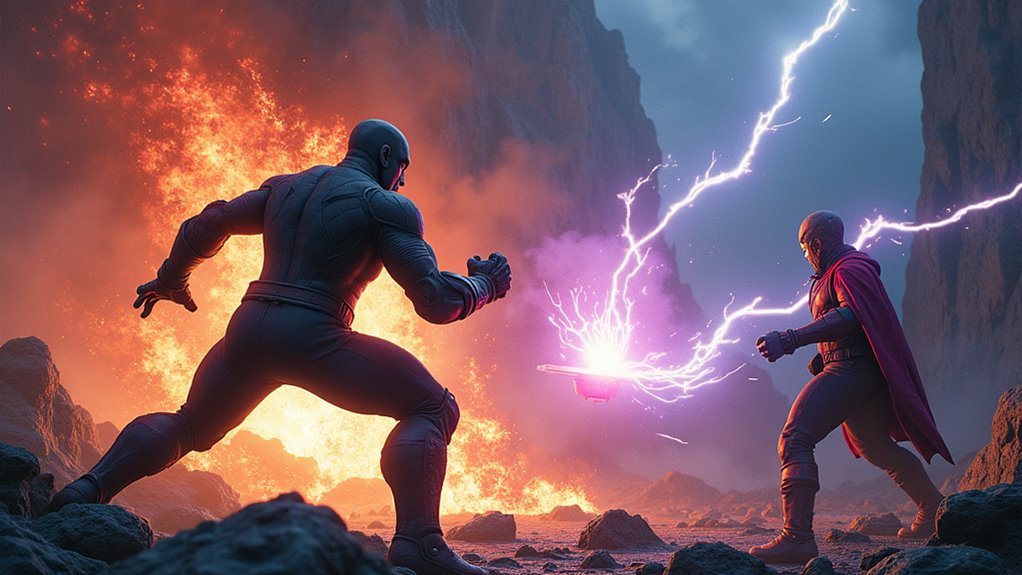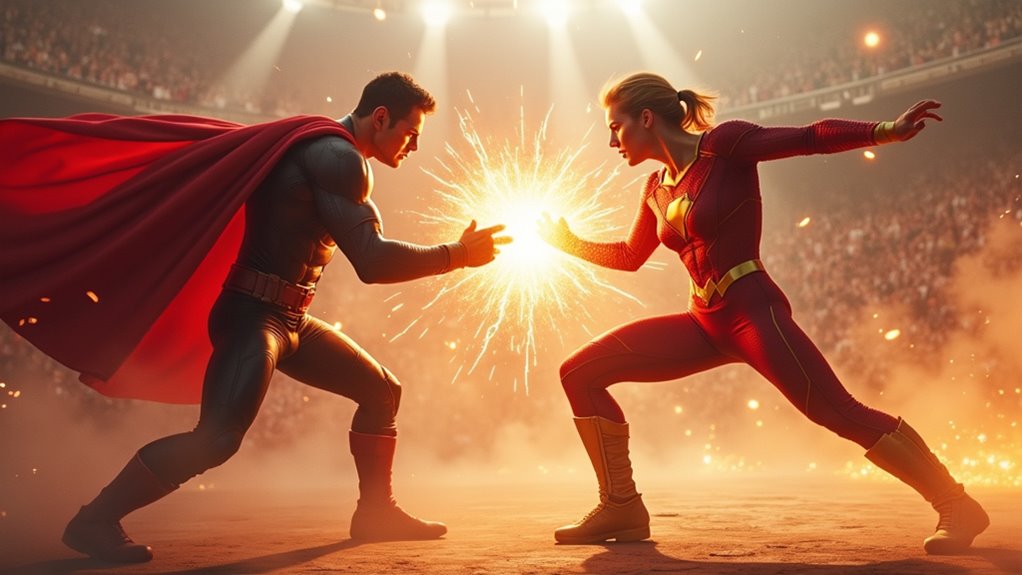Understanding Character Abilities and Their Impact
When you delve into the world of Marvel rivals, understanding character abilities is crucial for crafting effective strategies.
 Each character has unique strengths and weaknesses that can significantly impact gameplay. By analyzing character synergy, you can create powerful combinations that amplify your team’s effectiveness. For instance, pairing a tank character with a healer can enhance durability while maintaining offensive pressure.
Each character has unique strengths and weaknesses that can significantly impact gameplay. By analyzing character synergy, you can create powerful combinations that amplify your team’s effectiveness. For instance, pairing a tank character with a healer can enhance durability while maintaining offensive pressure.
On the flip side, knowing ability counters is equally important. Certain abilities can negate or diminish the effectiveness of others, so staying informed about these interactions can turn the tide in battle. For example, if you face an opponent who relies heavily on a damage-over-time ability, having a character with healing or damage mitigation can neutralize their advantage. Ultimately, mastering these elements of character abilities allows you to make informed decisions, ensuring that you’re maximizing your potential in every match while minimizing vulnerabilities.
Coordinating Strategies With Teammates
Although individual character abilities are important, coordinating strategies with teammates can elevate your gameplay to a whole new level. Effective communication techniques are vital in achieving optimal team synergy. By sharing your plans and adapting to your teammates' strengths, you can create a cohesive unit that maximizes your chances of success.
Here are some strategies to consider:
- Establish clear roles: Assign specific duties based on each character's strengths.
- Use in-game communication tools: Utilize pings or chat messages for quick information sharing.
- Plan engagements: Discuss when and where to engage the enemy for maximum impact.
- Adapt tactics on the fly: Be prepared to adjust strategies based on the flow of the match.
- Review past performances: Analyze previous games to identify successful strategies and areas for improvement.
Analyzing Opponent Tactics
How can you effectively analyze your opponents' tactics to gain the upper hand? Start by closely observing their behavior throughout the match. Look for patterns in how they engage, retreat, or position themselves. Are they aggressive or defensive? Identifying these styles can help you predict their next moves.
You should also take note of their preferred strategies. Do they often cluster together or spread out? This can influence your counter tactics; for instance, if they group up, consider area attacks or crowd control abilities to disrupt them.
Additionally, keep track of any abilities or items they frequently use. Understanding cooldowns and resource management can give you insight into when they’re vulnerable. By analyzing these aspects of opponent behavior, you’ll be better equipped to adapt your strategies and seize opportunities in battle, ultimately enhancing your chances of victory.
Leveraging Terrain and Map Features
Understanding your opponents’ tactics provides a solid foundation for your strategy, but leveraging terrain and map features can take your gameplay to the next level. By focusing on terrain advantages, you can enhance your decision-making and overall effectiveness on the battlefield. Here are some strategies to consider for maximizing map control:
- Positioning: Use elevated terrain to gain a vantage point, allowing you to spot enemies before they see you.
- Cover Utilization: Take advantage of obstacles to shield your characters from enemy fire.
- Choke Points: Control narrow passages to limit enemy movement and create ambush opportunities.
- Objective Proximity: Place your characters near objectives to secure them while utilizing terrain for defense.
- Mobility Routes: Identify paths that allow quick repositioning, making it easier to respond to threats or objectives.
Adapting to Changing Battlefield Conditions
As battlefield conditions shift, your ability to adapt can significantly impact your team’s success. Dynamic adaptability is crucial; it allows you to respond effectively to unexpected challenges, such as sudden enemy movements or environmental changes. By assessing the battlefield regularly, you can gauge when to change your strategy, whether that means repositioning your heroes or altering your focus on objectives.
Moreover, battlefield flexibility enables you to pivot quickly, optimizing your team’s performance under fluctuating circumstances. For instance, if an ally becomes incapacitated, you might need to reassess your roles and redistribute responsibilities to maintain momentum. Likewise, keeping an eye on resource availability can inform strategic decisions, guiding you on when to engage or retreat.
Ultimately, honing these skills ensures you're not just reacting to changes, but proactively shaping the battlefield to your advantage, enhancing your team's chances for victory in the ever-evolving landscape of Marvel Rivals.
Frequently Asked Questions
How Do I Select the Best Hero for My Play Style?
To select the best hero, assess your play style by identifying strengths and weaknesses. Use hero selection criteria like agility, power, and teamwork. This ensures a better match for your strategic preferences and gameplay approach.
What Are the Best Counter-Picks Against Popular Heroes?
To counter popular heroes, focus on hero matchups that exploit their weaknesses. Develop counter strategies tailored to specific abilities, ensuring you select heroes with advantages over your opponents, maximizing your effectiveness in battles.
How Can I Effectively Communicate During a Match?
To effectively communicate during a match, use clear callouts strategies and voice communication. Specify enemy locations, coordinate attacks, and share your status. This clarity enhances teamwork and can significantly improve your chances of success.
What Are Common Mistakes New Players Make in Objectives?
New players often overlook objective positioning and resource management. They tend to cluster their characters instead of spreading out, which can leave them vulnerable. Balancing these aspects is crucial for successful gameplay and achieving objectives effectively.
How Do I Improve My Individual Skills Outside of Team Play?
To improve your individual skills, focus on skill drills and solo practice. Analyze your performance, identify weaknesses, and dedicate time to specific areas. Consistency in practice will enhance your overall gameplay and decision-making abilities.
